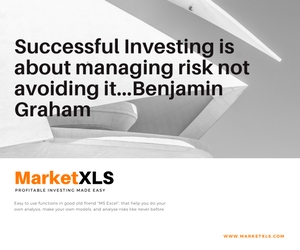You don’t need to be a scientist to make money off of science. In fact, many of the most promising new healthcare technologies today are being developed by public companies – which means anyone can harness the power of biotech to build wealth, including you! Here are three of the most critical new technologies explained. How they work, the business potential of each, and who the major players are in each niche. We are living in a new golden era of discovery; why shouldn’t you be adding some biotech treasure to your portfolio?
1. Immunotherapy. (Also referred to as “I/O.” )
You may not feel like it, but you are a merciless killer. But don’t worry, so are your friends, so am I, so are most healthy adults. In fact, the healthy human immune system is one of the wonders of the world, killing millions of foreign invaders and errant cells every day. What do I mean by errant cells?
Well, everyone knows about germs. But what you may not know is that you have cancer inside of you right now. Don’t panic!! Not really cancer. Just what could be the beginning of the beginning of cancer. You see, our cells multiply and successfully reproduce millions of times per day without us even thinking about it. Because no one is perfect, a few of those reproductions go wrong. At which time your immune system sweeps in and escorts those errant replicas to the garbage bin of your body. Every great once in a while, for a certain percentage of unlucky people, the an evil replica mutates, and learns to avoid your immune system. Then, you have the seed of cancer.
Why are most cancers destroyed by the body, but a few missed? How, exactly, does this process work? (or not work?). And, most importantly, what, if anything, can be done to stop this from happening? All of these questions were a mystery until lately.
In 2015, Keytruda burst on the scene, curing nonagenarian Jimmy Carter of his terminal cancer like some kind of biblical miracle. The drug, brought to market by Merck, has been no less than a sensation, kicking off the “immunotherapy revolution,” a chance to empower the body to cure it’s own cancer by slightly modifying the immune system. Previous cancer therapies have been notoriously damaging to the whole body and only moderately effective. Keytruda, when it works, makes tumors melt away like ice on a hot day, leaving little to no side effects.
When it works. Merck has not cured cancer. Keytruda has shown a wide variety of response rates in different types of cancers, in different types of patients, sometimes working with great efficiency, often not working at all. When it works, why it works, in who it works, are still a matters of furious scientific study.
This tantalizing success, tempered by unpredictable results, has unleashed a biotech arms race unlike any the world has ever seen. In a down year, $MRK was the top performing stock in the S&P 500. Not to be left out of the game, other major pharmaceutical companies have invested heavily in a wide variety of immunotherapy programs, attacking every kind of cancer in every kind of patient.
On other end of the spectrum, Keytruda’s pioneering success has inspired scientists all over the world to take a risk and start a biotech. From tiny microcaps, to multi-billion dollar unicorns, hundreds of different publicly traded companies are experimenting with the human immune system’s dormant capacity to cure itself.
Many of these companies will fail. Many will be acquired by much larger companies, and then fail. Some will wind up creating “Me too” or “Me three” cancer technologies that will fail to differentiate themselves from scientific competitors. But a few will give birth the the next Keytruda: a true scientific breakthrough that generates a fortune for investors who took a risk early.
Big Pharma with Strong Immunotherapy Programs: $MRK, $PFE, $JNJ
Large Biotechs offering Car-T Therapy, a kind of therapy where cells are custom re-engineered outside of the body to fight your cancer: $GILD, $NVS
Emerging Biotech Stocks with nascent immunotherapy programs: (promising, but risky): $NKTR, $BLUE, $MRTX, $ADAP, $MGNX, $SGEN, $ARGX, many others
2. CRISPR
To understand the importance of CRISPR, imagine the following. The best carpenter you know, more than a laborer, but a real craftsman, a man with the knowledge to work miracles with wood. Now imagine that same craftsman staring at a ruined home, creaking, leaking, falling apart. He knows how to fix it, but he doesn’t have any tools. No matter how good his intentions, how strong his knowledge, our carpenter simply can’t fix a deficient home without proper tools to get the job done.
CRISPR is the toolkit needed to fix a deficient genetic code. With the discovery and refinement of the CRISPR technology, geneticists across the world finally have a tangible, effective, and controllable way to manipulate the genetic code that governs most life on planet earth.
Of course, this is controversial, as many scientists have already begun to push the limits (or indeed exceed the limits) of experiments that Society deems ethical. But make no mistake about it. We have crossed into a bold new world of genetic manipulation that could give rise to all kinds of dreams and nightmares.
Leaving aside rouge scientists with no regard for community norms, the business applications of the technology are only in their infancy for a few reasons. First, most major diseases such as Cancer are actually quite complex genetically; they result from some toxic mix of genes and environment, but what causes what, when, is not fully understood in most cases. Therefore, our carpenters stand ready to cut and saw, but they are not quite sure where to begin. Many biotechs are starting out with the most simple genetic diseases; situations where children are born with one terrible broken gene that will torment them until fixed.
Another reason why CRISPR related medicine is just beginning is because we still do not fully understand how different genes relate to each other. For example, in the now infamous case of rogue Chinese scientist He Jianku, Dr. Jianku made an edit to twin embryos seeking to make the unborn children immune to HIV. While this may, or may not, have been achieved through the illicit edit, many scientists now speculate that Dr. Jianku also changed the twins’ brains by accident. Results? We’ll see in 18 years.
Therefore, CRISPR’s use to create bold new medicine is still in its early stages. Which many feel is perfect time to invest.
Stocks specializing in CRISPR: $CRSP, $EDIT, $NTLA
3. mRNA (also referred to as “Messenger RNA”)
We usually think of medicine as a foreign substance that is put into your body. A pill synthesized from ancient roots that combats bad bugs. A liquid injection made by living bacteria that can calm an out of control immune system. An IV drip that can burn cancer cells to oblivion.
But what if we could induce your body to make its own medicine, inside of your body? Your body manufactures millions of proteins every day; what if we could alter that process just a little bit so that your body made proteins that would fight a specific disease? That is the concept behind messenger RNA medicine.
Much like CRISPR, the burgeoning field of mRNA focuses less on specific medicines (at the moment) and more on platforms. In the great tradition of technology platform battles, think about Nikola Tesla’s alternating electric current, vrs. Albert Edison’s direct electric current, or in the 1980’s, Apple’s Mac vrs. Microsoft’s Windows.
In all of these cases, the basic technology and it’s potential had become well understood, even if the early products were clunky, or even kind of lame. Several competing platforms presented reasonable pros and cons. But eventually, due to the peculiar economics of technological progress, one platform was destined to become the dominant platform.
Today’ mRNA platform companies are just beginning to pioneer specific medicines that will help patients. These early phase 1 and phase 2 studies are more proof of concepts than anything else. But they have attracted enormous funding and global attention due to the sheer potential of the technology. Moderna Inc, has lately debuted as the biggest biotech IPO in history, and now has a lot to prove. Buyer beware! Remember when MySpace seemed like THE place to be on the internet?
Stocks specializing in mRNA: $MRNA, $TBIO, $ALNY
This post shouldn’t be the end of your research, it should be the beginning. A lot of these companies are young, which means you might need tremendous patience and perseverance if you are ever to uncover biotech gold. But make no mistake; there is treasure out there somewhere. Why shouldn’t you be the one to make out like a bandit?










2 thoughts on “3 EMERGING BIOTECHNOLOGIES THAT COULD MAKE YOU RICH (And the Stocks that Love Them)”
Comments are closed.